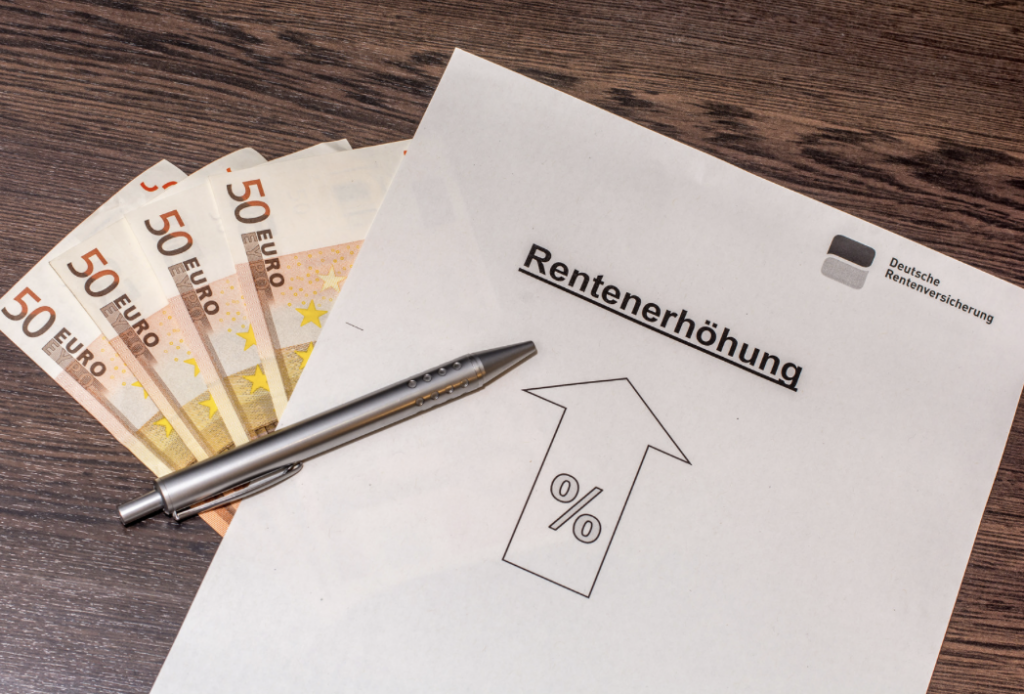Table of Contents
Pension planning is a crucial aspect of financial management for self-employed expats living in Germany. Unlike employees who benefit from employer contributions to their pension plans, self-employed individuals must take full responsibility for their retirement savings. For expats, the process can be even more complex due to differences in the pension systems across countries. In this article, we’re going to explain the essentials you need to know to make informed decisions and secure a financial future with your self-employed pension in Germany.
1. Eligibility For Self-Employed Pension In Germany
Participation in the public pension scheme is not mandatory for all self-employed individuals. For expats, the first step in pension planning is understanding whether they are eligible for this system and the benefits it offers. While many self-employed individuals in Germany can voluntarily opt into the public pension system, the rules can vary depending on the type of self-employment. Expats should carefully review these rules to determine if this option aligns with their retirement goals. Those who opt-in will need to contribute a percentage of their income to the pension system, with the potential to receive pension payments upon reaching retirement age through their self-employed pension in Germany.
2. Pension Options for Self-Employed Expats
Voluntary Participation in the German Public Pension Scheme


Private Pension Plans
For expats who prefer more control over their retirement savings, private pension plans are a viable alternative. These plans, which include Riester and Rürup pensions, offer tax benefits and the potential for higher returns compared to the public pension system. Each type of plan has its own advantages and disadvantages, which expats should consider based on their financial situation and retirement goals when setting up a self-employed pension in Germany. On this link you will find more information on the different private pension plans we offer.
International Pension Plans
Expats who anticipate moving to another country in the future may find international pension plans more suitable. These plans are designed to be portable, allowing the policyholder to continue contributing and receiving benefits regardless of their location. This flexibility makes international pension plans an attractive option for globally mobile individuals, which can complement a self-employed pension in Germany.
Self-Invested Pension Plans (SIPPs)
Self-Invested Pension Plans (SIPPs) are a type of personal pension plan that offers individuals greater control over how their retirement funds are invested. SIPPs are popular among self-employed expats who prefer to manage their own investments or who want access to a wider range of investment options than those available through traditional pension plans. These can be a critical part of a self-employed pension strategy in Germany. SIPPs allow you to choose and manage a variety of investments within your pension plan, including stocks, bonds, mutual funds, and property. This flexibility can potentially lead to higher returns, but it also requires a certain level of financial knowledge and a willingness to actively manage the investments.


Occupational Pensions
While occupational pensions are typically associated with employees, self-employed individuals in Germany have the option to set up their own occupational pension schemes. This can be particularly beneficial for those who run a business with employees or who anticipate growing their business in the future.
Occupational pensions for the self-employed involve setting up a pension scheme that you and potentially your employees can contribute to. These schemes can provide significant tax advantages, as contributions may be tax-deductible. Additionally, occupational pensions can be an attractive benefit if you have employees, helping to attract and retain talent.
3. Finding Affordable Pension Plans
These are the key factors you should consider when choosing a provider for your self-employed pension in Germany:
- Fees and charges: Analyze the fee structure, including management fees, administration fees, and any other charges that may apply. Lower fees can have a significant impact on your pension savings over time.
- Flexibility: Consider the flexibility of the plan in terms of contribution amounts, withdrawal options, and the ability to switch investments within the plan. This is particularly important for expats who may need to adapt their self-employed pension in Germany to changing circumstances.
- Customer service: Evaluate the quality of customer service provided by the pension provider. Reliable and accessible customer support can make managing your pension plan much easier, especially if you encounter issues or need assistance with your account.
- Tax efficiency: Assess the tax benefits associated with each provider’s plans, as some may offer better tax advantages than others, particularly if you are contributing from abroad or planning to retire outside of Germany. You can also check out the German Federal Ministry of Finance’s official website, which includes information on tax regulations and financial planning.

Utilizing Financial Advisors
Given the complexity of pension planning, especially for expats, consulting a financial advisor can be a wise decision. An experienced advisor can help you navigate the various pension options, optimize your tax situation, and ensure that your plan aligns with your long-term financial goals regarding your self-employed pension in Germany.
Not all financial advisors have experience working with expats, so it’s crucial to find one who understands the unique challenges you face, such as dealing with multiple currencies, tax jurisdictions and the possibility of future relocations. An advisor with this expertise can help you choose a pension plan that is both tax-efficient and flexible, ensuring it can adapt to your changing circumstances.
4. Common Mistakes to Avoid
Not Starting Early
One of the biggest mistakes self-employed expats make is delaying their pension planning. The earlier you start, the more time your investments have to grow, and the more financially secure you will be in retirement. Waiting too long can limit your options and require larger contributions to meet your retirement goals for a self-employed pension in Germany.
Ignoring Currency Fluctuations
For expats, currency fluctuations can have a significant impact on pension savings, especially if you plan to retire in a country with a different currency. It’s important to consider how exchange rates might affect your pension’s value and explore options to mitigate this risk and protect your self-employed pension in Germany, such as holding pension assets in multiple currencies.

Overlooking Tax Implications
Tax considerations are a crucial part of pension planning, but they can be complex for expats due to different tax laws in Germany and their home countries. Overlooking tax implications can lead to unexpected liabilities or missed opportunities for tax relief. It’s advisable to seek professional advice to ensure your pension plan is tax-efficient.
Not Considering Future Mobility
For many expats, the possibility of moving to another country in the future is a reality. Failing to consider future mobility can significantly impact your pension planning. If you plan to relocate, you’ll need to ensure that your pension plan is portable and that it aligns with the pension regulations of your potential future country of residence. International pension plans or SIPPs, which offer greater flexibility, might be better suited for those who anticipate moving between countries.
In conclusion, by understanding your options and taking proactive steps to secure your financial future, you can enjoy the benefits of living in Germany while ensuring a comfortable and well-funded retirement. Remember, the sooner you start, the better positioned you will be to achieve your retirement goals with your self-employed pension in Germany. If you require any further guidance or assistance, please don’t hesitate to reach out to us. We now have a live chat feature available on every page! If you have any questions, just click to start a conversation, and our team will be happy to assist you shortly.
What our clients say about our services






Secure your future abroad with tailored insurance & pension plans
Get expert advice on the best solutions for expats – personalized to fit your unique needs. Start planning today!








